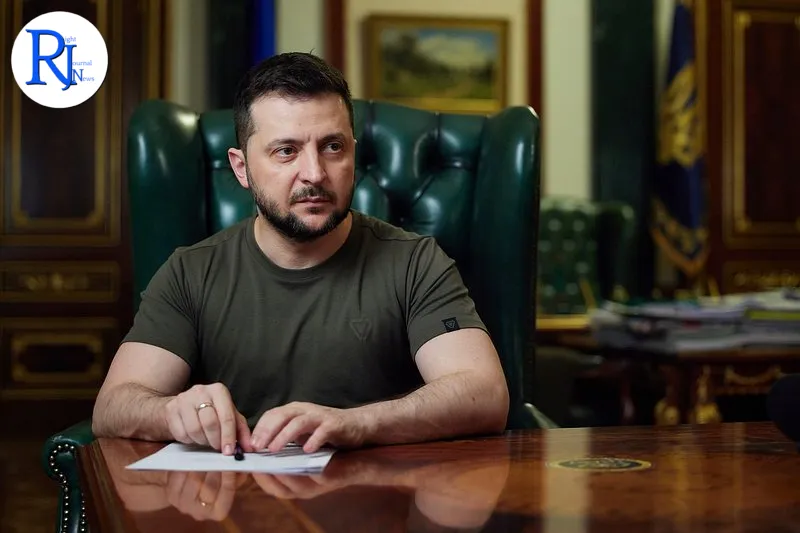Ukrainian President Volodymyr Zelenskyy is set to address European Union leaders in Brussels, focusing on a recent phone call with former US President Donald Trump. The meeting, scheduled for today, will also centre on defence strategies and the ongoing situation in the Middle East. Prime Minister Kyriakos Mitsotakis of Greece expressed his support for the EU’s defence white paper, a document outlining increased fiscal flexibility for member states to bolster their defence spending.
Brussels Meeting: A Critical Gathering
The meeting in Brussels takes place against a backdrop of geopolitical tensions and strategic realignments. Scheduled for 20 March 2025, this gathering of EU leaders comes at a time when Europe faces numerous challenges, from the war in Ukraine to shifting alliances in the Middle East. The decision to include Zelenskyy in the discussions underscores the importance of Ukraine’s situation in the broader European security context.
Zelenskyy’s involvement is particularly significant as he is expected to provide insights into his conversation with Donald Trump. This call has drawn considerable attention due to its potential implications for international diplomacy and security. The EU leaders are keen to understand the nuances of this dialogue, especially in light of recent developments in US foreign policy.

Defence White Paper: A Step Towards Greater Flexibility
The EU’s new white paper on defence, which Greek Prime Minister Mitsotakis has championed, aims to grant member states more fiscal leeway to enhance their military capabilities. Mitsotakis has long advocated for increased defence spending, and he expressed satisfaction with the document’s content. “I am happy with the white paper as it aligns with my calls for more fiscal flexibility to boost defence spending,” he stated.
This white paper represents a strategic shift for the EU, which has traditionally maintained a more conservative approach to defence expenditure. The proposal’s approval by finance ministers is anticipated to be a pivotal moment, potentially leading to a unified and robust European defence policy.
Ukraine’s Ongoing Struggle: A Central Focus
Ukraine remains a focal point in European discussions, particularly given the ongoing conflict with Russia. Zelenskyy’s briefing is expected to highlight the latest developments on the ground and the support Ukraine needs from its European allies. The conflict has prompted widespread concern across Europe, with many nations reassessing their security policies and commitments.
The EU has consistently supported Ukraine through sanctions on Russia and aid to Kyiv. However, the need for a more coordinated defence strategy has become increasingly apparent, as highlighted by the current discussions.
Middle East Tensions: A Secondary Agenda
While the primary focus remains on Ukraine, the Middle East’s volatile situation is also on the agenda. European leaders are expected to deliberate on recent escalations in the region, assessing their impact on European security and interests. The EU’s role in mediating peace and stability in the Middle East has been a longstanding issue, and the current discussions aim to reaffirm this commitment.
The interconnectedness of global conflicts means that developments in the Middle East could have significant repercussions for Europe. As such, the EU is keen to adopt a proactive stance, seeking diplomatic solutions and partnerships to address these challenges.
Insights from Military Chiefs in London
Following the Brussels meeting, European military chiefs will convene in London to further discuss defence strategies. This gathering will provide an opportunity for military leaders to exchange insights and coordinate efforts to enhance Europe’s defence posture. The discussions are expected to focus on operational readiness and the integration of new technologies in military operations.
The London meeting underscores the importance of military cooperation among European nations, particularly in the face of evolving security threats. By fostering collaboration and sharing expertise, European military leaders aim to strengthen the continent’s collective defence capabilities.
Future Implications for European Security
The outcomes of these meetings in Brussels and London are likely to have far-reaching implications for European security. The focus on Ukraine and the Middle East highlights the EU’s commitment to addressing pressing global issues. Moreover, the emphasis on increased defence spending and military cooperation signals a shift towards a more assertive European defence policy.
As Europe navigates these complex challenges, the role of strategic partnerships and alliances will be crucial. The discussions in Brussels and London mark a significant step towards a more cohesive and resilient European security framework, with potential benefits for both regional stability and global peace.

